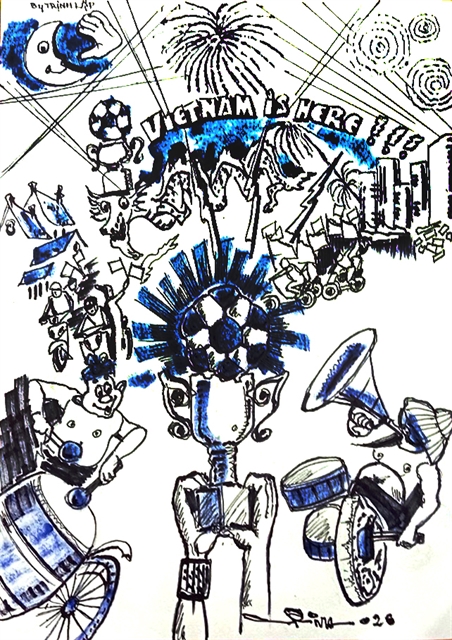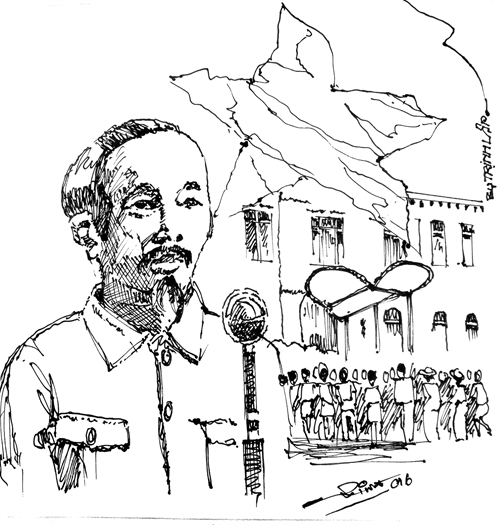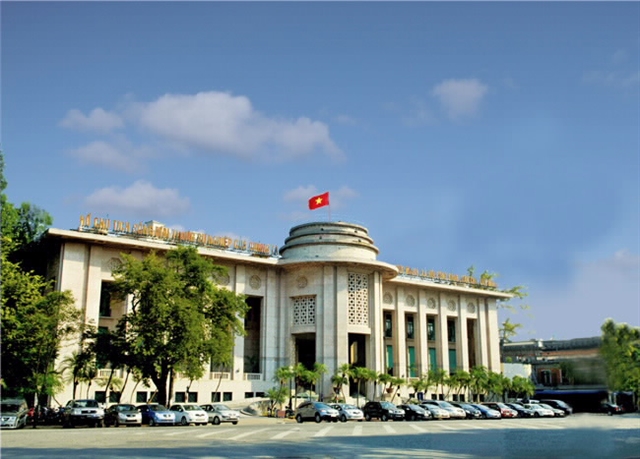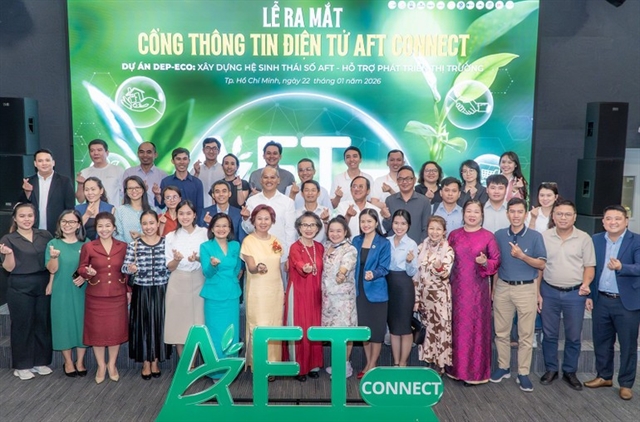 Talk Around Town
Talk Around Town

Ever since I was young, I studied in the American education system, and consequently, have an American-centric perspective of history. Also, unfortunately, my history classes contributed little to my knowledge of the spirit of September 2nd.
 |
| MHT |
by Nguyễn Thuỳ Linh
Every year, as Việt Nam’s National Day approaches, my mind goes blank as I try to explain the significance of this day.
Although I spend less time in Hà Nội than I do in New York City, I have always considered Hà Nội my home. My family is here. At the same time, I am well aware that my understanding of Việt Nam’s history remains fragmented.
Ever since I was young, I studied in the American education system, and consequently, have an American-centric perspective of history. Also, unfortunately, my history classes contributed little to my knowledge of the spirit of September the 2nd.
This Friday, September 2nd, is Việt Nam’s National Day — an annual holiday commemorating President Hồ Chí Minh’s proclamation of independence on Hà Nội’s Ba Đình Square. Interestingly, after Japan formally surrendered to the Allies in World War II, it was only a few hours later that Uncle Hồ proclaimed Việt Nam’s independence from French rule.
Bright red flags with golden stars can be seen fluttering across the façades of houses and buildings. The symbolic act of putting up the Vietnamese flag is a declaration of national unification. The large commercial building and the humble sidewalk café share a similar national spirit on this great day.
Fireworks have become part of the celebration, as well as the military parade and people’s rally at Ba Đình Square in front of Hồ Chí Minh’s mausoleum. Every five years, boat races are also held on Hoàn Kiếm Lake.
The iconic photo of President Hồ speaking into the microphone is etched into the people’s memory and is a moment in history they will relive time and again.
However, despite the obvious pride, there are also little signs of confusion, generational conflict and indifference.
Many of my generation share the view that Việt Nam’s National Day has become more about simply enjoying that extra day off from work and school and making plans to go out.
So what does being Vietnamese mean today? How much does one need to know about September 2nd to be considered Vietnamese? Or is being Vietnamese, nowadays, simply about knowing where the best late-night phở is or being acquainted with the latest slang?
When I ask my grandfather, Nguyễn Ngọc Lim, about Việt Nam’s National Day, he begins by saying, “Uncle Hồ started off as a cook, but he travelled all around the world. He spoke more foreign languages than anyone could at the time, and he put his life on the line to carry us to where we are today.”
For the older generation, recognising the courageous life of Hồ Chí Minh is part of what instills that sense of national pride.
My grandfather continues his story, and it seems as if he is reliving it as his own; one that he witnessed long ago. He narrates it as if he is searching for something from his own memory, something that I do not have.
For the youth, September 2nd is a day built on the memories of the past generations. It is a day we can treasure thanks to the stories that have been passed down from our great-grandparents to our grandparents, and so on.
And it is thanks to these voices from the past that we can grasp the significance of this day, decades after it has ended.
“Việt Nam’s National Day is an opportunity to remember the values that this nation was built upon and where these beliefs will take us in the future,” my grandfather says.
When I ask him whether he believes September 2nd is still celebrated with the same spirit today, he takes a long time to respond.
Seeing me still looking at my grandfather, waiting for his response, my grandmother replies instead, “It is still the same. I am sure it is still the same.”
Yes, I know she expects the young generation to build on that glorious past, to make new achievements of our own, and I promise her she will not be disappointed.— VNS




